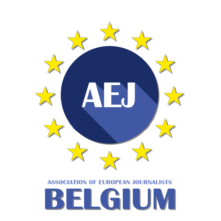By Benedetta Zimone

Youth unemployment and gender inequality in the labour market are among some of the biggest challenges facing the European Union today.
Young Work (YO-WO) is a project funded by the EU Commission under the ‘CERV’ – the Citizens, Equality, Rights and Values programme- which seeks to raise awareness about these problems in the European labourforce.
It aims to find solutions to integrate young people into the labour market, particularly, NEETs (not in employment, education or training) aged between 15-29 years in Europe. This phenomenon has been increasing in the last few years, especially after the outbreak of the Covid-19 pandemic.
The YOUNG WORKFORCE project brings citizens from different Member States together, aiming to share their different perspectives, ideas, and experiences from their countries to find valid solutions and broaden their horizons.
The latest conference took place in Rotterdam on the 21st and 22nd of November 2023 and the AEJ Belgium, through its intern Benedetta Zimone, sat down with Christina Eirini Karvouna, head and founder of the Rotterdam branch of the Hellenic Institute of Cultural Diplomacy in the Netherlands, one of the main members of this project.
Cooperation, she noted, is one of the key elements of this project. “European cooperation is really important, for personal development, for the organisation’s development and also for the participant’s development,”Karvouna said.
Reflecting on why people should participate in this project, Karvouna stated that “it is important to bring fresh ideas, people who attend the meetings have to be open-minded to discuss and share information for increasing the support of young generations”.
Consequently, involving young people is crucial. “It can also be easier for us to understand how the youth unemployment issue can be solved, in particular, we try to engage young people from different European states in order to transfer the values and add opportunities to this project”.
Karvouna says she pays special attention to gender equality when planning the event. “Our organisation tries to have a balance, as much as we can, I am also a woman and I also faced some difficulties, I have been through these gender issues in my previous job experiences, and I want to support the future female entrepreneurs,” she notes.
The participation of young female journalists in the event, she believed, is advantageous and constructive. These professionals can raise their voices and share their experiences.
According to the Council of Europe, women are under-represented in media ownership, information production, and in decision-making positions. More precisely, women represent only about a quarter of the persons heard, read about or seen in the news. In addition, gender stereotypes exist and some particular journalistic departments such as economics, politics and front-page stories are still mainly male-directed.
Nevertheless, the Committee of Ministers adopted in 2013 a Recommendation on gender equality and media, pointing out 16 measures to be implemented in six areas, including gender equality policy and laws.
